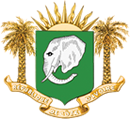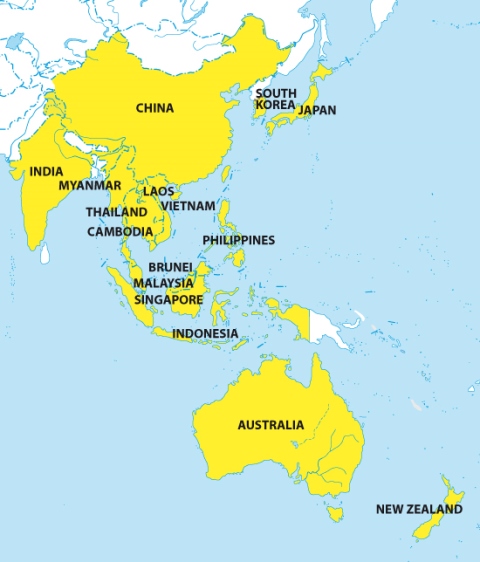SOLOMON ISLANDS: LOSS AND GAINS FOR AUSTRALIA AND CHINA
query_builder
As anticipated, Solomon Islands joins China's Belt and Road Initiative last week when Solomon Islands Prime Minister Manasseh Sogavare met Chinese President Xi Jinping on October 9, during his first official visit to China since his Government cut diplomatic ties with Taiwan on September 21, 2019.
Beijing has reportedly promised Honiara some $US500 million ($730 million) in financial aid in exchange for switching its diplomatic recognition.
President Xi and Solomon Islands Prime Minister signed several agreements, including one about cooperating multi-trillion-dollar Belt and Road infrastructure initiative, and others on economic and education strategies.
China’s interests lie in tourism in addition to fisheries, with some copra and palm oil supplies. Most of the Solomon Islands machinery and infrastructure has to be imported, and the Belt & Road agreement with Honiara is said to be worth US$500 million and to provide for the leasing by China of Tulaghi Island, which is the home of the Solomon Islands’ capital, Honiara, as well as and the construction of a gas and oil terminal.
President Xi during his meeting with visiting Solomon Islands Prime Minister said the Solomon Islands is located on the southern extension of the 21st Century Maritime Silk Road. The two countries should take the opportunity of the signing of a Memorandum of Understanding on building the Belt and Road, align their development strategies and boost cooperation to help improve the Solomon Islands people's livelihood as well as the island country's capability of independent and sustainable development.
Kiribati, another Pacific nation has also cut ties with Taiwan just days after Solomon Islands — leaving Taipei with just four allies left in the region.
Kiribati's President Taneti Maamau said that his country acted in its best national interest when it severed ties with Taiwan and re-established diplomatic relations with China following a long internal review and assessment of our international relations.
Aid requested by Kiribati from Beijing includes loans and a Boeing 737 aircraft.
Move by Kiribati government lack support from opposition. England Iuta, an opposition MP has described it as "chequebook diplomacy" and raised concerns about China giving large, unsustainable loans to countries, known as "debt-trap diplomacy".
"You can understand that with all this belt and road initiative from China … we're worried about what is happening in Vanuatu and Sri Lanka and the other countries in Africa," he said.
The Solomon Islands have made it clear that financial support for infrastructure especially actions on climate change were behind the decision to pivot from Taipei to Beijing.
"We would be simply irresponsible to isolate a global, willing player to assist developing and least-developing countries in the pursuance of the United Nations Sustainable Development Goals, including actions on climate change," Prime Minister Manasseh Sogavare said in a statement.
The focus on law and order, good governance and addressing corruption under our post-conflict, development strategy is welcomed but without a major infrastructure development program that will open up opportunities in the rural area, we are standing on a shaky ground”, he argued.
Taiwan spent about $US105 million in Solomon Islands between 2011 and 2017.
Mr Sogavare expressed frustration at the intense international focus on his country's decision to switch allegiances.
"Solomon Islands will not allow itself to be used as a tool to satisfy the narrow geopolitical interest of foreign political powers," he said.
Popular opinion on the island was divided, with 80 per cent of the population and 50 per cent of parliamentary members opposed to the switch in relations. Given the lack of parliamentary support, the prime minister extended parliament’s recess until November.
On the other hand, the cabinet was strongly supportive, led by newly elected, iron-willed Prime Minister Manasseh Sogavare. In 2017, Sogavare was forced out as prime minister amid allegations of accepting a Huawei bribe.
China’s gain:
In July 2019, Solomon Islands Prime Minister Manasseh Sogavare told the Australian National University's Little Red Podcast that Taiwan was "completely useless to us" economically and politically.
Instead, Beijing could help the island nation "establish a military force".
Winning over Solomon Islands and Kiribati also strengthens China's influence in the Pacific, where Washington and Canberra have grown increasingly worried about Beijing's increasing clout.
Australia's former High Commissioner to the Solomon Islands, James Batley commented that Honiara's decision was unsurprising and grounded in "access to resources".
The Lowy's Pacific Islands Program director Jonathan Pryke believes that Kiribati and Solomon Islands help solidify China’s narrative of its emergence as a major player in the Pacific.
He said there was already a sizeable Chinese commercial presence in Solomon Islands. China is the small nation’s largest export partner. It is also a growing source of imports, as more and more Chinese trade stores pop up all around the country. The story is similar in Kiribati, where China has taken a particularly keen interest in accessing the small nation’s bountiful fisheries.
He argued that as now that diplomatic ties are following these strong commercial links, we are likely to see further anxiety in Canberra about how China might seek to increase its influence.
Australia’s interests and failure to convince Solomon Islands
Australia has an outsize role and the largest aid provider to Solomon Islands. Since leading the Regional Assistance Mission to Solomon Islands (RAMSI) in 2003, Australia has been instrumental in helping the nation get back on its feet pouring in more than $3 billion in aid since then.
For year 2018-19 Total Australian ODA was $198.3 million whereas 2019-20 Total Australian ODA Estimate remains $174.4 million.
Under $2 billion Australian Infrastructure Financing Facility for Pacific announced in November 2018, a high speed Coral Sea Cable system from Sydney to Honiara is underway whereas under new security treaty, Australia is providing 2 new patrol boats to Solomon Islands.
Despite consistent financial and technical support, Australia fails to win over Solomon to stay allegiance to Taiwan for multiple reasons.
When Prime Minister Morrison visited Solomon Islands in June soon after taking over charge as Prime Minister and announced $225 million aid for next 10 years to develop infrastructure, the core purpose was to buy the influence and convince Island nation to maintain diplomatic ties with Taiwan.
Though publically Mr Morrison said that the question of recognition for Beijing was a sovereign matter for Solomon Islands and Australia didn’t have a horse in this race.
During Morrison visit to Solomon, locals who spoke to the public broadcaster ABC said Mr Morrison's impending visit only created a minor ripple, particularly as it was framed around the China-Taiwan conflict.
Other more politically savvy locals questioned his climate change policies in a country where islands are, quite literally, disappearing from the map.
Regional analyst and defence expert Jian Zhang told the ABC that China's growing influence in the region could be a concern for Australia considering the continuous enhancement of China's military strength and the growth of its long-range missile launch capability.
Mr. Zhang noted that the first country Mr. Morrison visited was Solomon Islands, "which reflects the potential worries about the establishment of diplomatic relations between Solomon Islands and China".
Former US assistant secretary of state for East Asia and the Pacific, Kurt Campbell, argues that the US has overlooked the South Pacific and failed to see its geostrategic relationship to the US defence posture in Asia.
Similarly, Australia’s security is also seriously challenged by the proximity of Pacific island states, where it is feared that China will build military installations. Not only did the Solomon Islands and Kiribati break diplomatic relations with Taiwan, but Tuvalu could follow suit.
Analyst Bill Sharp maintains that concern abounds that a domino effect could ensue that would form a crescent of Pacific island nations heavily influenced by China. Such an eventuality could cut off Australian shipping lines to the US and other destinations, and serve as a roadblock to American troops potentially coming to Australia’s aid.
Australia and USA could both have put greater effort into addressing the needs of the region. Only when faced with the possibility of the Solomon breaking relations with Taiwan did the US talk about reopening its embassy in the country, move criticised by the Solomon Prime Minister. The US embassy in Papua New Guinea covers the Solomon and Vanuatu.
"The timing of their expression of interest for greater engagement questions their genuineness”, Prime Minister Manasseh Sogavare said in his statement.
“The late American and Australian push to prevent the rupture is hypocritical when they themselves have broken relations with Taiwan to establish them with China. The American and Australian failure to address the top issue for South Pacific nations – climate change – contributed to the decisions by Honiara and Tarawa”, Bill Sharp argued.
From 2011-2017, the US contributed just US$98 million to the region. Australia offered the most financial assistance of any country during that period, with contributions totalling US$6.5 billion. However, there are long-term, smouldering feelings about Australian arrogance and cultural insensitivity.





